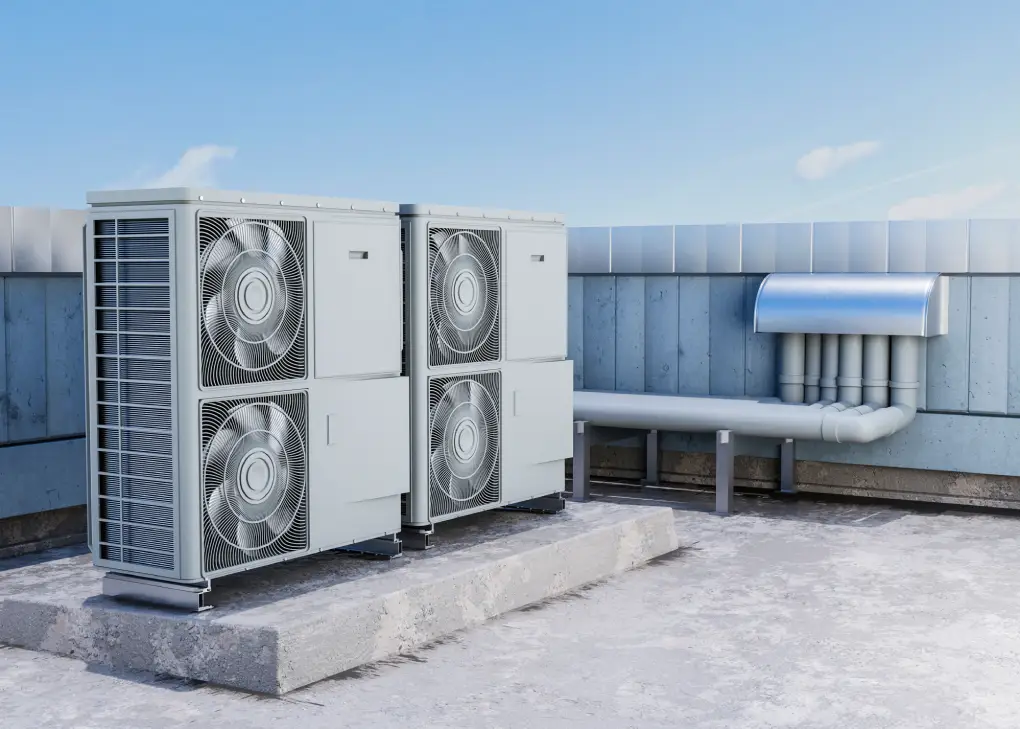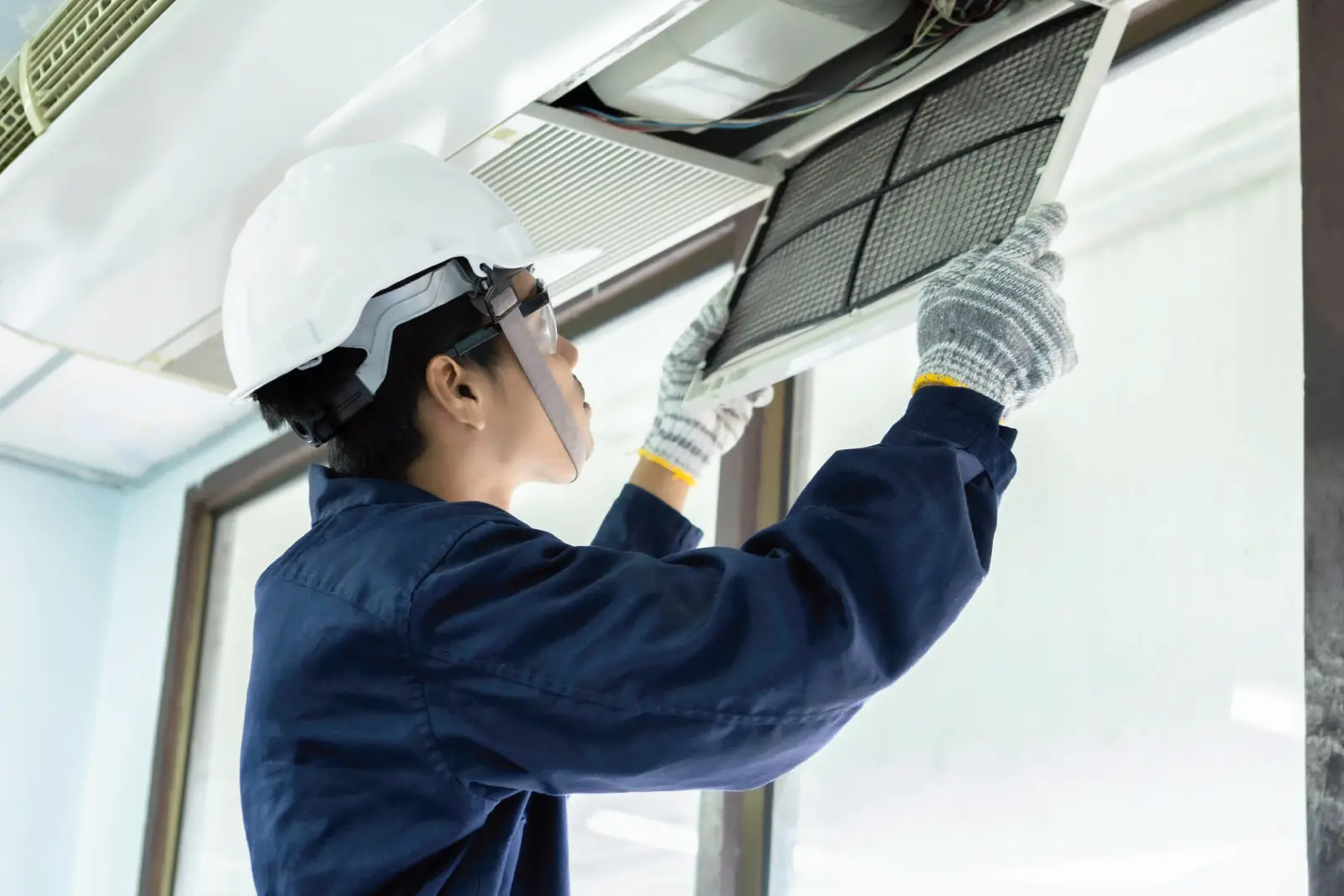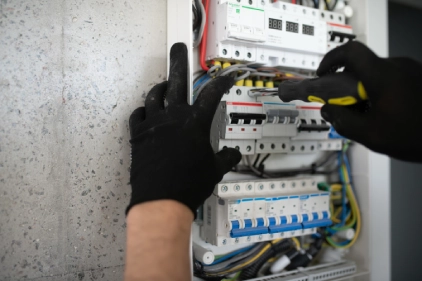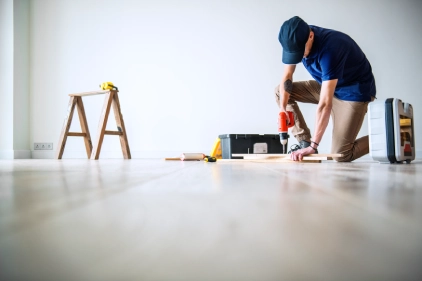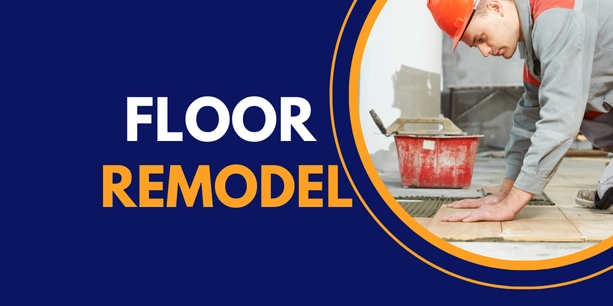Essential Guide to Seasonal HVAC Maintenance: The Key to Year-Round Comfort and Efficiency
Your HVAC system works tirelessly throughout the year to keep your home comfortable, whether during chilly winters or scorching summers. Seasonal HVAC maintenance is vital to ensure it operates efficiently, avoids unnecessary energy costs, and enjoys a long lifespan. Preventive maintenance keeps your system reliable and efficient, ensuring comfort all year round.
In this guide, we’ll explore the importance of seasonal HVAC maintenance and how to keep your system in optimal condition year-round.
Understanding HVAC Maintenance
HVAC maintenance refers to the regular servicing and upkeep of your heating, ventilation, and air conditioning system. It involves tasks like:
- Changing air filters
- Cleaning coils
- Checking refrigerant levels
- Inspecting electrical connections
Proper HVAC maintenance ensures your system runs efficiently and safely, extends its lifespan, reduces energy bills, and improves indoor air quality. It’s not just about preventing issues—it’s about optimizing performance and saving money.
By keeping your HVAC system in top condition, you can avoid unexpected breakdowns and ensure your home stays comfortable throughout the year.
Why Seasonal HVAC Maintenance Is Important
Many homeowners neglect HVAC maintenance until problems arise. However, seasonal maintenance offers significant benefits:
- Energy Efficiency: A well-maintained system uses less energy, lowering utility bills.
- Prolonged Lifespan: Regular care reduces wear and tear, helping your system last longer.
- Improved Air Quality: Clean filters and ducts ensure healthier indoor air.
- Fewer Repairs: Preventive maintenance catches small issues early, avoiding costly repairs.
- Consistent Comfort: A properly maintained system keeps your home comfortable year-round.
Seasonal HVAC Maintenance: A Year-Round Approach
To maximize your HVAC system’s performance, follow a seasonal maintenance schedule.
Spring: Prepare for the Cooling Season
Spring is the ideal time to prepare your air conditioning system for summer. Key tasks include:
- Change Air Filters: Clean or replace filters to maintain proper airflow.
- Clean Condenser Coils: Remove dust and debris to improve cooling efficiency.
- Check Refrigerant Levels: Low levels can indicate poor cooling and higher energy bills.
- Inspect Ductwork: Look for leaks that waste energy.
- Test Thermostat: Ensure accurate temperature control and efficient operation.
Schedule professional maintenance in spring to ensure your AC is ready for the heat.
Summer: Keep Your AC Running Smoothly
During summer, your AC works overtime to keep your home cool. Focus on:
- Performance Monitoring: Ensure your AC cools evenly.
- Clear the Drain Line: Prevent water damage from blocked condensate drains.
- Inspect Fan Blades: Check for smooth operation and unusual noises.
- Check Electrical Components: Tighten loose connections and inspect wiring.
- Clean the Outdoor Unit: Remove leaves and debris to maintain proper airflow.
Proper summer maintenance ensures your home stays cool without skyrocketing energy bills.
Autumn: Prepare for the Heating Season
As temperatures drop, it’s time to get your heating equipment ready. Key tasks include:
- Clean or Replace Filters: Dirty filters strain your system and restrict airflow.
- Inspect the Heat Exchanger: Look for cracks that could lead to carbon monoxide leaks.
- Check the Pilot Light: Ensure it burns blue, not yellow.
- Lubricate Moving Parts: Prevent wear and tear.
- Test the Thermostat: Verify that heating settings are functioning properly.
Proper fall maintenance ensures your system is ready for the cold months ahead.
Winter: Keep the Heat Flowing
In winter, your heating system works daily to keep your home warm. Focus on:
- Check Air Vents: Ensure vents aren’t blocked and are properly adjusted.
- Monitor Furnace Performance: Listen for unusual noises.
- Inspect Carbon Monoxide Detectors: Safety first—ensure detectors are working.
- Seal Duct Leaks: Prevent heat loss and improve efficiency.
- Check the Humidifier: Maintain proper humidity levels indoors.
Regular winter maintenance keeps your home warm and energy bills manageable.
Outdoor Unit Maintenance
The outdoor unit, or condenser, plays a critical role in your HVAC system. To keep it running efficiently:
- Keep the Area Clear: Remove debris, leaves, and branches to allow proper airflow.
- Clean the Condenser Coils: Dirty coils reduce cooling efficiency and increase energy consumption.
- Inspect Electrical Connections: Ensure all connections are secure to prevent system failures.
- Check Refrigerant Lines: Look for leaks or damage that could impact cooling performance.
Regular outdoor unit maintenance ensures your system operates efficiently and lasts longer.
Safety Concerns and Precautions
Basic Safety Precautions
When performing HVAC maintenance, follow these safety tips:
- Turn Off Power: Shut off power to avoid electrical shocks.
- Inspect for Carbon Monoxide Leaks: Regularly check the heat exchanger for cracks.
- Check Gas Pressure: Ensure proper gas pressure to prevent system strain.
- Avoid Overworking the System: Regular maintenance prevents unnecessary strain and prolongs system lifespan.
By following these precautions, you can ensure a safe and efficient HVAC maintenance experience.
Thermostat and Controls
Thermostat Calibration and Programming
A properly calibrated thermostat ensures your HVAC system operates efficiently, saving energy and reducing bills. During seasonal maintenance, technicians will:
- Inspect the thermostat for accuracy.
- Program it for optimal energy efficiency.
Proper thermostat settings prevent your system from overworking, ensuring consistent comfort.
System Controls Check
Technicians will also inspect system controls to ensure they function correctly. This includes:
- Verifying thermostat settings.
- Ensuring proper cycling on and off.
- Catching potential sensor or control issues early.
Addressing these issues promptly ensures your system runs smoothly and efficiently.
Ductwork and Vent Maintenance Tasks
Inspecting and cleaning your ductwork is crucial for maintaining your HVAC system’s efficiency and air quality. Over time, dust, debris, and even mold can accumulate, restricting airflow and forcing your system to work harder.
Key Ductwork Maintenance Tasks:
- Inspect for Damage or Leaks:
- Look for visible cracks, holes, or disconnected sections.
- Seal leaks with duct tape or mastic sealant to prevent energy loss.
- Clean the Ducts:
- Remove dust and debris to improve airflow and air quality.
- Professional duct cleaning is recommended every 3-5 years.
- Check for Blockages:
- Ensure vents are clear of obstructions like furniture, rugs, or curtains.
- Replace Air Filters:
- Change filters every 1-3 months to prevent dust buildup in the ducts.
Benefits of Clean Ductwork:
- Improved Airflow: Clean ducts ensure optimal airflow, reducing strain on the system.
- Energy Efficiency: Prevents the HVAC system from overworking, lowering energy costs.
- Enhanced Air Quality: Reduces allergens and pollutants circulating in your home.
Smart HVAC Technology
Modern HVAC systems integrate smart technology to enhance comfort, efficiency, and convenience.
Features of Smart HVAC Systems:
- Smart Thermostats: Devices like Google Nest or Ecobee allow remote temperature control via mobile apps.
- Learning Capabilities: These thermostats adapt to your schedule, optimizing heating and cooling based on your habits.
- Maintenance Alerts: Smart systems notify you of potential issues, such as clogged filters or system malfunctions.
- Energy Efficiency: Automation ensures the system only runs when needed, conserving energy.
Why Adopt Smart HVAC Technology?
- Convenience: Control your system from anywhere.
- Cost Savings: Reduce energy consumption through optimized scheduling.
- Proactive Maintenance: Alerts help prevent costly repairs.
HVAC Maintenance for Vacation Homes
Vacation homes require special attention to ensure the HVAC system remains functional during periods of inactivity.
Tips for Vacation Home HVAC Maintenance:
- Set Energy-Saving Temperatures:
- Winter: Set the thermostat to 55°F to prevent freezing pipes.
- Summer: Set it to 85°F to reduce energy use.
- Schedule Regular Inspections:
- Check for refrigerant leaks, clogged filters, and ductwork issues.
- Use Smart Thermostats:
- Monitor and control the HVAC system remotely.
- Turn Off Unnecessary Systems:
- Shut down non-essential components to save energy.
Environmental Benefits of Regular Maintenance
Regular maintenance not only saves energy but also benefits the environment.
How Maintenance Reduces Environmental Impact:
- Energy Efficiency: Lower energy consumption reduces reliance on fossil fuels.
- Reduced Emissions: Efficient systems emit fewer greenhouse gases.
- Proper Disposal of Refrigerants: Prevents harmful chemicals from leaking into the atmosphere.
By maintaining your HVAC system, you contribute to a sustainable, eco-friendly home.
Indoor Air Quality Solutions
Maintaining good indoor air quality is essential for a healthy living environment.
Air Quality Solutions Include:
- Air Filters: Regularly replace filters to remove dust, pollen, and allergens.
- Whole-Home Purifiers: Systems with HEPA filters or UV germicidal lights eliminate bacteria, viruses, and mold.
- Dehumidifiers and Humidifiers: Balance indoor moisture levels to prevent mold growth and dryness.
Benefits:
- Cleaner, fresher air.
- Reduced allergy and asthma symptoms.
- Improved overall health and comfort.
DIY Maintenance vs. Professional Maintenance
Some HVAC maintenance tasks can be done yourself, while others require professional expertise.
| DIY Maintenance | Professional Maintenance |
|---|---|
| Replace air filters monthly | Inspect and clean evaporator coils |
| Clean around outdoor units | Check refrigerant levels |
| Check thermostat settings | Test system performance |
| Ensure vents are unobstructed | Inspect electrical connections |
Combined Efforts:
- DIY tasks help maintain the system between professional visits.
- Professional servicing ensures thorough inspections and long-term efficiency.
HVAC Maintenance During Renovations
Renovations can introduce dust and debris into your HVAC system, potentially causing damage.
Tips for Protecting Your HVAC System During Renovations:
- Seal Vents and Ducts: Prevent debris from entering the system.
- Minimize Use: Avoid running the HVAC system during construction.
- Post-Renovation Cleaning: Professionally clean the ducts and coils to remove accumulated dust.
Taking these precautions ensures your system remains clean and efficient after renovations.
Commercial HVAC Maintenance
Commercial HVAC systems face greater demands than residential ones due to extended operational hours and larger areas served.
Commercial Maintenance Tasks:
- Inspecting rooftop units and ventilation systems.
- Programming thermostats for energy efficiency.
- Checking for wear and tear on components.
Benefits of Regular Commercial Maintenance:
- Reduced downtime and repair costs.
- Improved air quality for employees and customers.
- Lower energy bills through optimized performance.
Signs Your HVAC System Needs Maintenance
Even with regular maintenance, some warning signs indicate potential issues:
- High Energy Bills: Rising costs may signal inefficiency.
- Uneven Temperatures: Some rooms are warmer or cooler than others.
- Strange Noises: Banging, rattling, or squeaking sounds.
- Weak Airflow: Reduced airflow from vents.
- Frequent Cycling: The system turns on and off more often than usual.
If you notice any of these signs, schedule professional maintenance promptly.
How Seasonal Maintenance Saves Money
Seasonal maintenance may seem like an expense, but it offers significant cost savings:
- Lower Utility Bills: Efficient systems consume less energy.
- Fewer Repairs: Early detection prevents costly breakdowns.
- Extended System Lifespan: Proper care minimizes wear and tear.
Hiring the Right HVAC Professionals
When selecting an HVAC contractor, consider the following:
- Experience: Choose licensed and insured professionals with a proven track record.
- Reviews: Check third-party sites for ratings and testimonials.
- Transparent Pricing: Ensure estimates are clear and upfront.
- Comprehensive Services: Look for contractors who handle both heating and cooling systems.
FAQs About Seasonal HVAC Maintenance
1. What will happen if I do not have seasonal maintenance done on my HVAC system?
If you skip seasonal HVAC maintenance, you may face:
- Reduced Efficiency: Your system will work harder, consuming more energy.
- Increased Energy Bills: Poor performance leads to higher utility costs.
- Sudden Breakdowns: Lack of care increases the risk of unexpected failures.
- Voided Warranty: Many manufacturers require regular maintenance to keep warranties valid.
2. Will HVAC maintenance keep my allergies and respiratory problems under control?
Yes, proper HVAC maintenance can help by:
- Cleaning air filters, ducts, and vents to remove allergens like dust, pet dander, and pollen.
- Improving indoor air quality, which minimizes triggers for allergies and respiratory issues.
3. What effect does seasonal HVAC maintenance have on my home’s humidity levels?
Seasonal maintenance ensures:
- Optimal Humidity Control: Clean coils and filters maintain proper moisture levels.
- Prevention of Excess Moisture or Dryness: A functioning humidifier or dehumidifier balances indoor air quality.
4. Is the seasonal maintenance for heat pumps different from traditional HVAC systems?
Yes, heat pumps require more frequent maintenance because they operate year-round for both heating and cooling. Specific tasks include:
- Servicing the reversing valve.
- Checking the defrost cycle.
- Verifying refrigerant levels.
5. How do I know if my HVAC needs more frequent maintenance?
Your HVAC system may need extra attention if:
- You have pets or allergies.
- You live in a dusty environment.
- You notice frequent cycling, uneven temperatures, or rising energy bills.
6. Will seasonal maintenance improve the resale value of my home?
Yes, a well-maintained HVAC system can increase your home’s resale value. Maintenance records reassure buyers that the system is in good condition, reducing their concerns about immediate repair costs.
7. How can HVAC maintenance prevent leaks from carbon monoxide?
Regular maintenance includes:
- Inspecting the heat exchanger for cracks.
- Ensuring proper ventilation to prevent carbon monoxide buildup.
- Installing and testing carbon monoxide detectors for added safety.
8. Will seasonal maintenance extend the life of my thermostat?
Yes, seasonal maintenance includes:
- Thermostat calibration checks.
- Battery replacements as needed.
- Ensuring proper temperature regulation, which reduces wear and tear on the thermostat.
Call to Action: Keep Your HVAC System in Good Condition!
Want year-round comfort and peace of mind? Schedule your seasonal HVAC maintenance with ROR Home Repair today! Our skilled technicians use advanced tools and extensive expertise to keep your system running smoothly.
Visit ROR Home Repair to learn more, and check out our Facebook page for updates and tips. Don’t delay—secure your comfort now!


